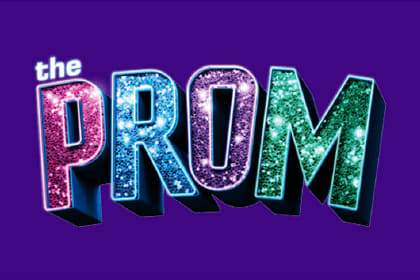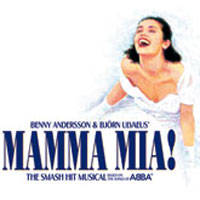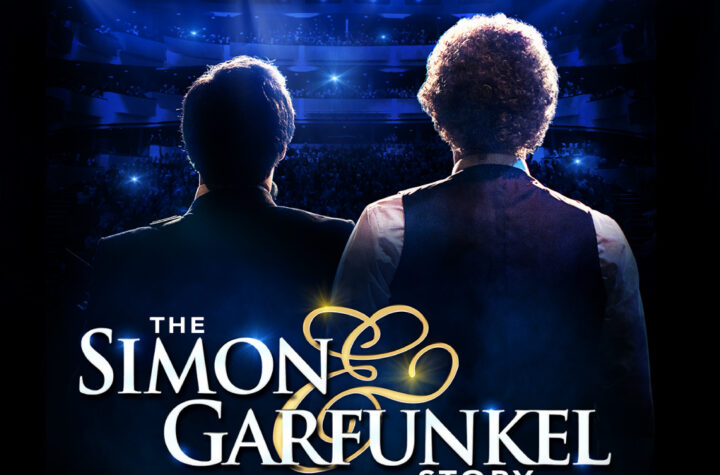
 Recommended *** “The Secret Council” is a tangle of a tale that tries to do too much with too small of a cast. So while the theme of spies and political intrigue is compelling, this adaptation of Agatha Christie’s novel “The Secret Advocate” is much too scattered and unfocused. With too many plots and subplots and actors playing multiple roles in an odd mix of comedy and drama, the audience becomes befuddled trying to keep track of everything. Once we become overly consumed with fleshing out portions that don’t seem to gel or examining what seems to be missing, we begin to lose the structure of the story. When we have to work so hard to figure out what’s going on, we don’t feel fulfilled. When the characters at the end have to spend far too much time explaining the story, something isn’t right.
Recommended *** “The Secret Council” is a tangle of a tale that tries to do too much with too small of a cast. So while the theme of spies and political intrigue is compelling, this adaptation of Agatha Christie’s novel “The Secret Advocate” is much too scattered and unfocused. With too many plots and subplots and actors playing multiple roles in an odd mix of comedy and drama, the audience becomes befuddled trying to keep track of everything. Once we become overly consumed with fleshing out portions that don’t seem to gel or examining what seems to be missing, we begin to lose the structure of the story. When we have to work so hard to figure out what’s going on, we don’t feel fulfilled. When the characters at the end have to spend far too much time explaining the story, something isn’t right.
The crime narrative is at its best when portions coincidentally parallel the politics of the United States today, for example, when our government sincerely believes that the Russians are trying to infiltrate our democracy in order to topple it from the inside. In “The Secret Council” (set in London, England, in the year 1929), the Russians are the prime suspects in wanting to bring down British democracy. What makes the story interesting is establishing the connection between a group of international conspirators and a series of murders that take place, beginning with the on-board killing on the Lusitania in 1915. Thus we join British detectives Tommy (Andrés Enriquez) and Tuppence (Melanie Keller), who are subsequently accompanied by the American detective Sam (James Lewis), as they discover how and why these murders may tie into the larger geopolitical state of affairs. Who are the conspirators? And what is their sinister plot?
Normally in a good murder mystery, the audience wants to join the detectives on an emotionally-charged roller coaster ride as they put the pieces together to solve a major crime or a string of crimes and uncover conspiracies if and when they exist. Normally, we want to see the “good guys” succeed in their detective work and eventually triumph over the “bad guys.” However, the problem is that all the characters—both the good and the bad—are unfortunately too much like caricatures than real people. The upshot is that we don’t care enough about the characters to have a major stake in their success, regardless of the fact that the future of the free world is at stake. And even when we find this theme important and we take an interest in how world events can affect the lives of ordinary people, a lot of this becomes lost when overdone humor and excessive one-liners detract us from solving the mystery for ourselves. That said, some of the best parts have to do with the humor and watching how quickly the actors change roles, costumes, and mannerisms.
Speaking of actors, special mention must be made of Joe Foust, who played a number of roles, i.e., St. John, the Russian agent, the attorney Mr. Whittington, and a string of women in drag. His outstanding performance is not to be missed! One of the highlights of the show is a funny line regarding all the women being played by Foust. “After awhile, they all look the same,” Tommy says.
This observation brings to light perhaps the most important criticism of the play, namely, that too few actors are playing far too many parts. For example, Elizabeth Ledo, who plays Mike, and Tina Muñoz Pandya, who plays Rita, also play other ensemble characters –as does James Lewis. The unfortunate result is that are too many occasions when we don’t know whether an actor is playing an entirely different character or whether they are playing the same character but wearing a disguise. Having a larger cast would allow the audience to better differentiate among the actors and their roles, which would cause far less confusion in keeping the various characters straight.
The artistic and technical aspects of the production cannot be beat. The scenic design is gorgeously done by Angela Weber Miller, with all sorts of wonderful period sets that move so quickly, cleverly, and timely. Settings feature a bar, a room in a house, an office, and more whimsical environments that work well with the plot and create atmospherics perfect for the early 1900s. Props design by Wendy Ann enhance these sets and add to the total ambiance. Lighting design by Michael McNamara could not be any better. Christopher Kritz’s original music is lovingly mysterious and well suited for the era. Rachel Lambert’s costumes are period appropriate and meticulously fashioned. Projection design by Yenji Kim features transparencies of old newspapers and old buildings that add a vintage touch to the performance. Violence and intimacy designer Maureen Yasko has definitely had her hand in a number of scenes involving fights and close contact; she is nicely skilled in her craft. Vocal and dialect coach Sammie Grant has done a great job with handling all of the British accents.
In this production, there are too many distractions from the murder mystery—such as the show’s lighthearted humor—which take away from its serious theme, namely, the conspiracy where democratic values are being threatened by authoritarianism. And while the twists and turns in the narrative are meant to trick us, these are not entirely successful when we are much too busy unwinding the intricacies of the plot. Act One unfortunately does not inspire us to anticipate what Act Two might bring—except that during the intermission, we might admit to a neighbor about being somewhat baffled about the story and its various threads. That said, both the climax and the resolution of “The Secret Council” are quite a surprise, and that, of course, is good thing. An audience that sees a mystery performed on stage wants to be conned; and in this respect, the show is successful.
“The Secret Council”, adapted by David Rice, directed by Brigitte Ditmars, and produced by First Folio Theatre, is playing through February 27, 2022, at the Mayslake Peabody Estate, 1717 31st Street, in Oak Brook, Illinois.
Tickets are $29 – $59
Special $20 student tickets are available.
Performance schedule:
Wednesdays and Fridays – 8:00 p.m.
Thursdays and Sundays – 3:00 p.m.
Saturdays – 4:00 p.m. and 8:00 p.m.
Captioned performances for the hearing impaired:
Saturday, February 12 – 4:00 p.m.
Friday, February 18 – 8:00 p.m.
For more information or to purchase tickets, please go to: https://firstfolio.org/?production=agatha-christies-the-secret-council.
For general information and to learn about other shows being offered by First Folio Theatre, visit https://firstfolio.org/ or phone 630-986-8067.
Note that COVID protocols include wearing masks throughout the entire performance. Please be prepared to show your vaccination card and ID upon entering the facility. Proof of full vaccination plus booster is required to attend any performance. There will be no exceptions.
To see what others are saying, visit www.theatreinchicago.com, go to Review Round-Up and click at “Secret Council”.






More Stories
“Mamma Mia!” Reviewed by Paul Lisnek
“The Simon & Garfunkel Story”
“Women Beware Women”